|
Genres, Themes, Actors, and Directors:
- Character Studies
- Diane Keaton Films
- Richard Brooks Films
- Richard Gere Films
- Sexuality
- Teachers
- Tuesday Weld Films
Review:
Based on the real-life murder of 27-year-old schoolteacher Rosanne Quinn, this cinematic adaptation of Judith Rossner’s bestselling novel was released the same year as Woody Allen’s comedic paean to life and love in New York — Annie Hall (1977) — and features its Oscar-winning eponymous heroine (Diane Keaton) in a radically different role. As in Annie Hall and many other films of the time (i.e., Paul Mazursky’s An Unmarried Woman), Looking for Mr. Goodbar deals with single females exploring their sexuality during the heyday of women’s lib. Indeed, once she gives herself the opportunity to sleep with any and every man she sees, Theresa takes advantage of this to the nth degree — but ultimately it’s more painful than liberating to watch her encounters with a series of unbearably chauvinistic men, including her married professor (Alan Feinstein) and a jealous player (Richard Gere).
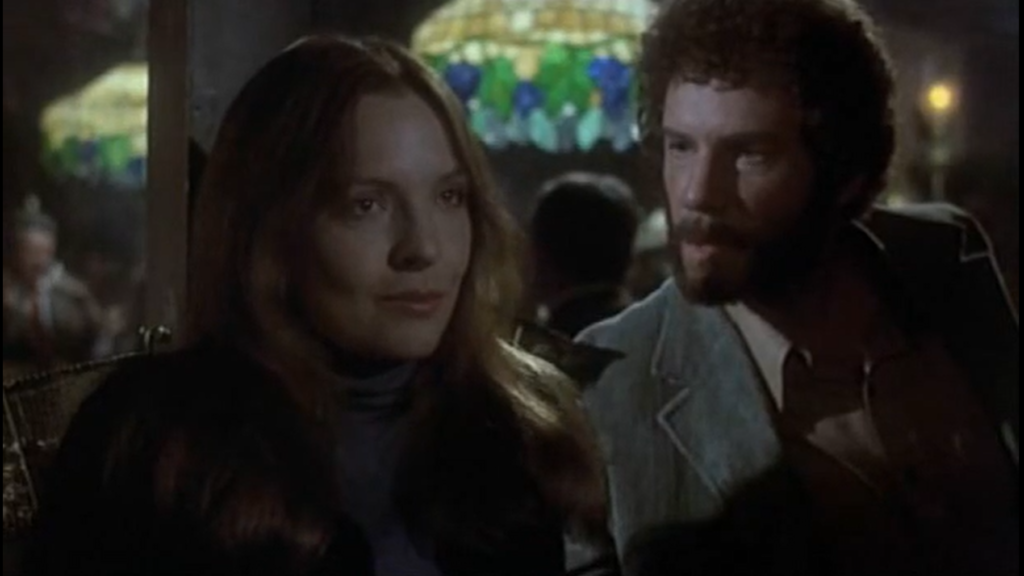
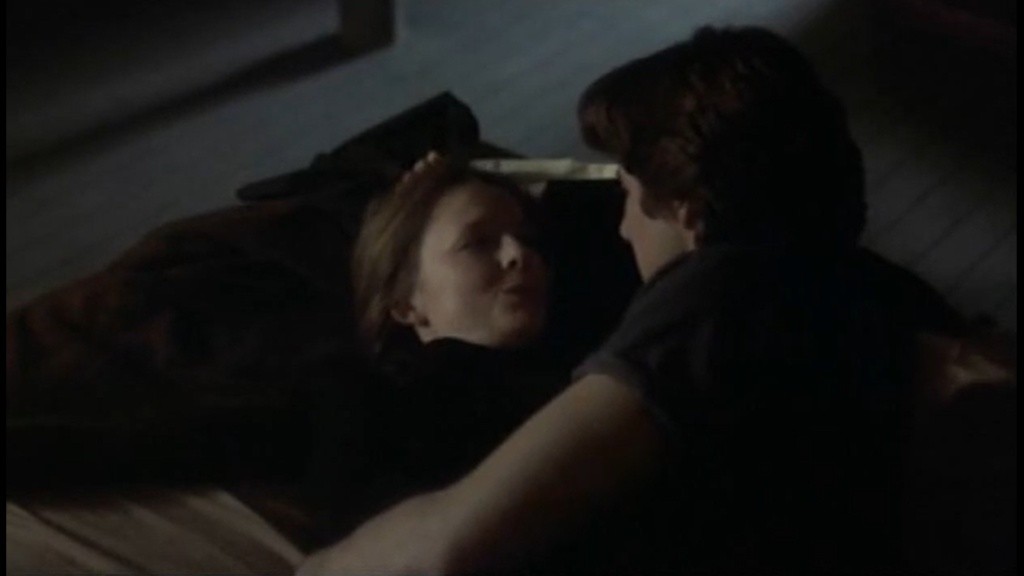
As several reviewers have pointed out (see links below), many elements of Looking for Mr. Goodbar‘s otherwise provocative screenplay are unnecessarily heavy-handed: Theresa’s conflicts with her Catholic parents come across as overbearingly Freudian, and the flashback scenes to Theresa’s traumatic childhood experiences with scoliosis are derivative. Plus, it’s distressing to watch a film in which you already know the gory outcome — the cumulative effect is one of watching a morality tale-cum-train wreck about the dangers of wanton sexual exploration. This is too bad, because Keaton’s daring performance as a woman unafraid of her own sexual cravings deserves a much more respectful treatment.
Redeeming Qualities and Moments:
- Diane Keaton as a rebellious schoolteacher living a double life
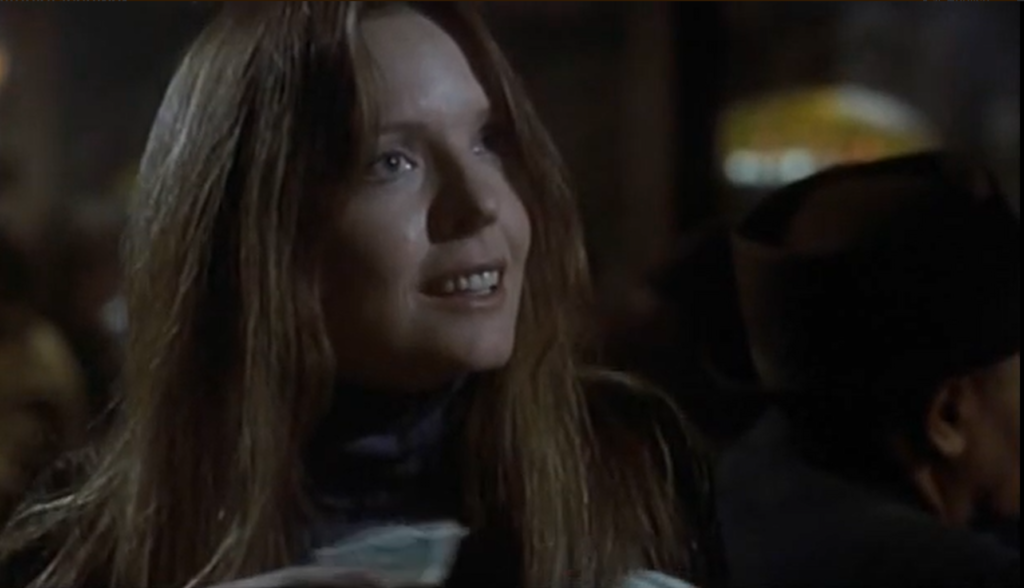
- A realistic, albeit cautionary, look at hedonism in the 1970s
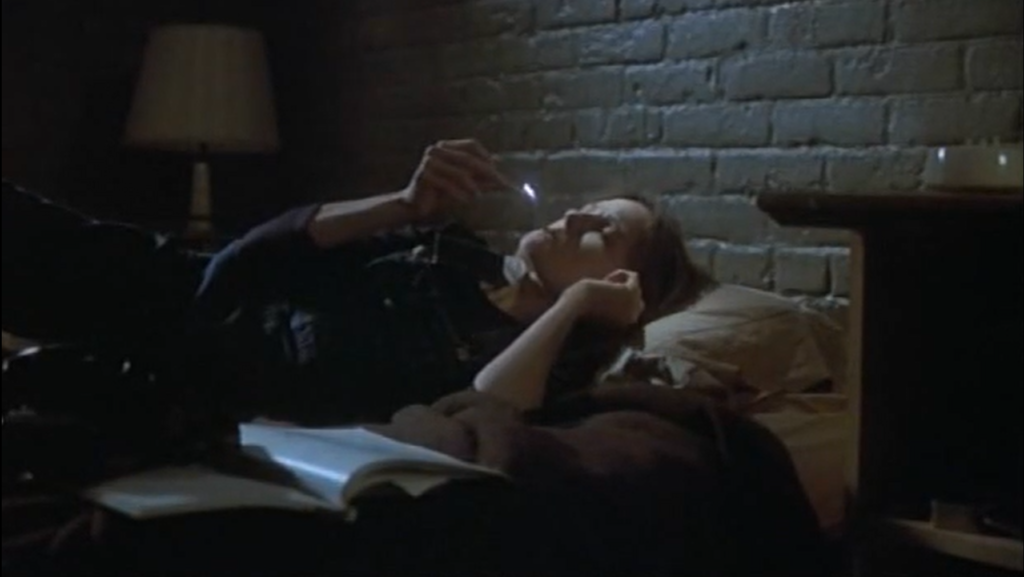
Must See?
Yes. While it’s not an entirely successful film, Diane Keaton’s performance makes it must-see viewing at least once.
Categories
- Noteworthy Performance(s)
Links:
|
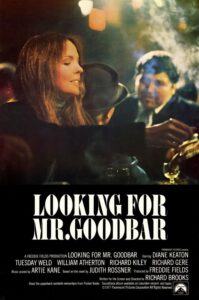




4 thoughts on “Looking for Mr. Goodbar (1977)”
A must. Is it completely successful?: Possibly not. Is it partially a mess of a film?: Yes, but the material is by nature messy. Is it heavy-handed?: Generally, yes, but life can be heavy-handed. I’ve seldom come across such a film – it continues to receive mixed reactions or is often shrugged off as mere sensationalism. It is also considered by many to be one of the most disturbing films ever. (That ending!) And, of course, that was the intention. I can’t recall whether I read Rossner’s book – I may have – but Ebert makes the curious point that Keaton’s character, the real-life victim, was apparently a masochist with a death wish (could that, in this case, be known?) and also says Brooks does not present her that way. Perhaps that’s why many people who see this film identify it simply as ‘a morality tale’ – that bad tends to result from unbridled sexuality. Personally, I don’t see the film as such. I see it more along the lines of ‘Life can be a trap if we allow it to be.’ (In that sense, ‘Goodbar’ covers ground similar to Brooks’ version of ‘In Cold Blood’.)The woman Keaton portrays keeps making the same mistakes in life and, if she isn’t overtly portrayed as a masochist, her mind-split actions hint that she is punishing herself, possibly without realizing it. So many of us have damaged pasts – if the film is cautionary, it could be warning against reliving personal history. As a film experience, I find it – warts and all – shattering. And, yes, Keaton’s performance alone is reason enough to see it.
You make some excellent, provocative points. I think I would have had a higher overall opinion of the film if Brooks hadn’t included flashbacks, fantasy sequences, etc. (which I found detracted from the overall trajectory of the story.) And I’ll agree that “Goodbar” doesn’t really fit into the classic trope of morality tales, simply because Brooks never explicitly criticizes Theresa for her actions — which is why the ending feels so incongruous somehow, more like a necessary plot device because of the real-life outcome for Roseann Quinn. I plan to read the novel and perhaps post another comment after this…
The last time I saw the film was a few years ago – Cinemax shows it occasionally – and I would like it to be a bit more fresh in my mind re: flashbacks and such. But I think I’ve seen it 5 or 6 times over the years – and those elements work for me. As I recall, the ‘facts’ of Theresa’s life are jumbled, and presented to us as the fractured grab bag her life has become. Admittedly, that makes ‘Goodbar’ somewhat problematic structurally but (just imho) no less compelling. If there had been no murder, there would most likely have been no book or film. So everything leads to that. The ending does feel incongruous – just the way it feels when a lapse in judgment results in bringing home the wrong person.
Funny that in all of the reviews and comments I’ve read no one has mentioned how powerful and disturbing the final murder scene is. A classic example of sight, sound and post production editing that ought to be examined in all film school classes.